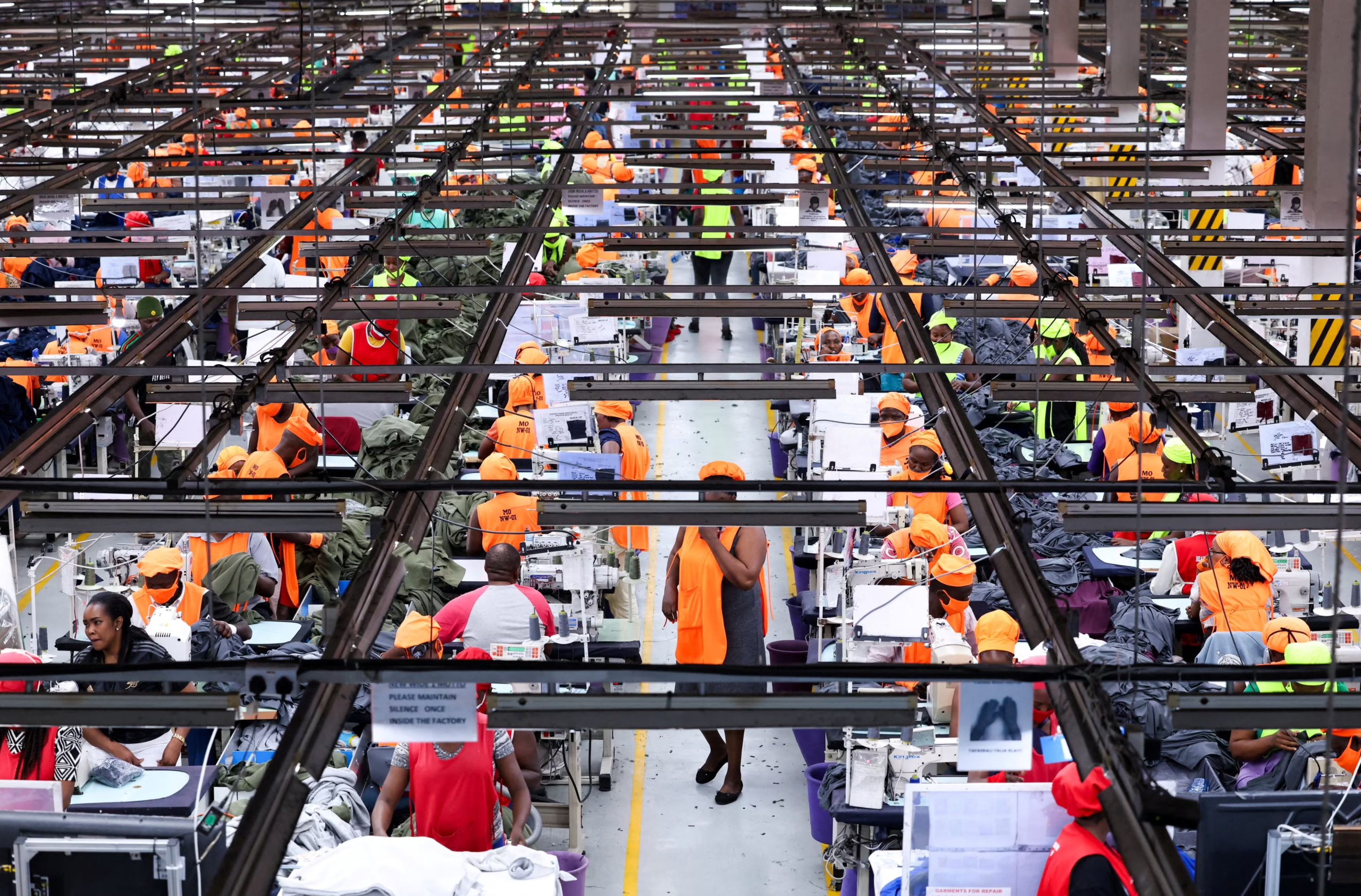
Uncertainty over the future of the African Growth and Opportunity Act (AGOA) has left exporters across the continent bracing for cutbacks, with workers in Kenya’s apparel hubs among those most exposed if the U.S. duty-free scheme lapses on Tuesday.
On Nairobi’s factory floors, the hum of sewing machines has given way to anxious conversations. At Shona EPZ, which makes sportswear for the U.S. market, orders have slowed and monthly output has fallen to about a third of normal levels as buyers delay long-term commitments. The company employs around 700 people and has invested about $10 million in recent years.
“If the extension isn’t granted, we may have to send people home and possibly shut down,” said factory director Isaac Maluki.
AGOA has underpinned U.S.–Africa trade for 25 years by granting duty-free access to thousands of products from more than 30 African countries. Kenya’s apparel industry has been a standout beneficiary, exporting $470 million in clothing to the U.S. in 2024 and supporting over 66,000 direct jobs—three-quarters held by women, according to industry groups.
Workers like 29-year-old Joan Wambui say the program’s fate will determine whether they can keep families afloat. “If AGOA expires, where shall we go?” she said, noting her wages support her child, two siblings in college, and her mother.
The Trump administration has signaled support for a one-year extension, but no formal announcement has been made. A 10% U.S. tariff on Kenyan garment imports introduced earlier this year has already squeezed margins; AGOA renewal would not remove that levy but would prevent additional duties from snapping back.
African governments have stepped up lobbying in Washington. Kenya’s trade minister has called for at least a short extension to allow a managed transition, while President William Ruto says Nairobi is also pursuing a bilateral deal with the U.S. South Africa has warned of significant fallout if AGOA lapses. Trade experts argue African states should pair any renewal push with a clearer offer to the U.S. and accelerate regional diversification via the African Continental Free Trade Area.
For workers, diplomacy moves too slowly. “We have ideas and the drive to make a difference,” Wambui said on a quick lunch break. “We just need the chance to keep working.”
